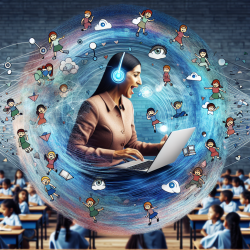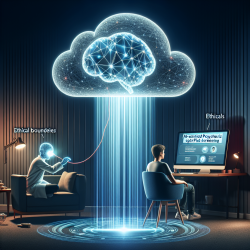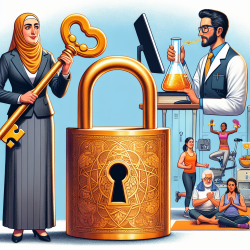The COVID-19 pandemic has significantly transformed the landscape of psychotherapy, necessitating a swift transition to telepsychotherapy. A recent study titled "Psychotherapists’ experiences of telepsychotherapy during the COVID-19 pandemic in Argentina: impact on therapy setting, therapeutic relationship and burden" provides valuable insights that can help practitioners enhance their telepsychotherapy skills.
Key Findings and Practical Applications
1. Therapy Setting
The study highlighted several challenges related to the therapy setting, such as patients' difficulties in finding a suitable and private place for sessions. To mitigate these issues, therapists can:
- Encourage patients to designate a specific, quiet space for therapy.
- Discuss the importance of privacy and suggest practical solutions like using headphones or finding a secluded area.
- Be flexible with session times to accommodate patients' schedules and reduce distractions.
2. Therapeutic Relationship
Maintaining a strong therapeutic relationship is crucial in telepsychotherapy. The study found both positive and negative impacts on the therapeutic relationship:
- Positive: Some patients felt more comfortable opening up from their own homes.
- Negative: The lack of physical presence can make it harder to establish trust and read non-verbal cues.
To strengthen the therapeutic relationship:
- Use video calls whenever possible to capture visual cues.
- Engage in active listening and verbalize empathy to compensate for the lack of physical presence.
- Regularly check in with patients about their comfort and feelings regarding the teletherapy format.
3. Therapist Burden
The study reported that therapists experienced increased stress and fatigue, often referred to as "Zoom fatigue." To manage this burden:
- Set clear boundaries between work and personal life, even when working from home.
- Take regular breaks between sessions to rest and recharge.
- Seek peer support and supervision to discuss challenges and share coping strategies.
4. Technical Issues
Technical difficulties were a common issue. To minimize disruptions:
- Ensure a stable internet connection and familiarize yourself with the teletherapy platform.
- Have a backup plan, such as switching to a phone call if the video fails.
- Educate patients on basic troubleshooting steps to handle minor technical issues.
Encouraging Further Research
While this study provides a solid foundation, further research is essential to fully understand and optimize telepsychotherapy practices. Practitioners are encouraged to stay updated with the latest research and continually refine their skills.
To read the original research paper, please follow this link: Psychotherapists’ experiences of telepsychotherapy during the COVID-19 pandemic in Argentina: impact on therapy setting, therapeutic relationship and burden.










